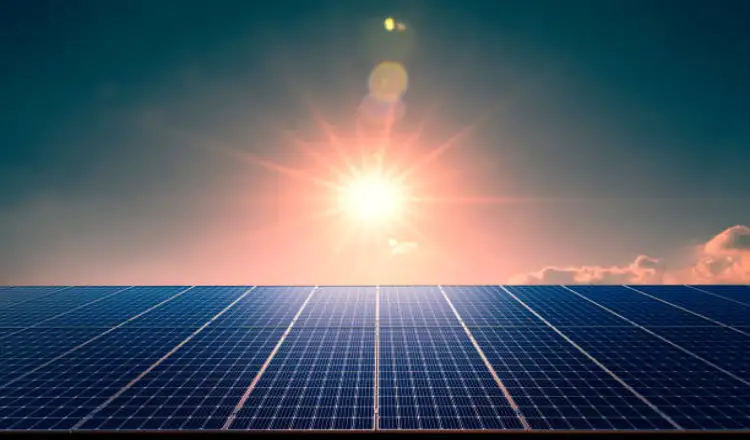The European Union’s shift towards a post-fossil fuel economy relies heavily on photovoltaics suppliers. As demand for renewable energy sources grows, these suppliers play a crucial role in facilitating solar power integration. With the photovoltaics market expanding rapidly, a key question emerges: can suppliers meet the increasing demand, and what implications will this have for Europe’s energy future? This prompts a closer examination of the industry’s development and potential impact.
EU Energy Policy Shift
The European Union’s energy landscape is undergoing a significant metamorphosis, driven by a deliberate shift in policy towards a post-fossil fuel economy. Europe is shifting to renewable energy sources, with solar energy emerging as a key player. The region’s solar energy capacity has increased substantially, driven by advancements in technology and decreasing costs. As Europe continues to invest in solar energy, it is likely to play a vital role in the region’s energy mix. Solar energy will be essential in reducing greenhouse gas emissions and achieving energy independence in Europe. This shift is expected to drive growth, with solar energy being pivotal in the process, and its development will be indispensable to the region’s energy needs.
Solar Power Integration
Solar power integration is becoming increasingly complex as Europe’s energy landscape evolves, with multiple sources of power being interconnected to form a robust and efficient energy grid. A photovoltaics supplier plays a pivotal role in this process, providing the necessary infrastructure for solar power generation. Effective solar power integration requires careful planning and coordination to guarantee a stable and reliable energy supply. By leveraging the expertise of a photovoltaics supplier, Europe can optimize its solar power capabilities, promoting a more efficient and sustainable energy system. This integration is essential for a post-fossil fuel economy, driven by solar power. Sneak a peek at this site for more insights into how solar power is shaping Europe’s energy future.
Renewable Energy Sources
Focusing on diversification of energy sources, European countries are increasingly relying on renewable energy sources, including wind, hydro, and geothermal power, to reduce their dependence on fossil fuels. Renewable energy sources, such as photovoltaics, are becoming integral to the energy mix. Photovoltaics, in particular, offer a viable alternative to traditional energy sources. As a key component of renewable energy sources, photovoltaics are driving the shift towards a post-fossil fuel economy. European countries are investing in photovoltaics to harness solar energy, further solidifying the role of renewable energy sources in the region’s energy landscape, including photovoltaics.
Photovoltaics Market Growth
Generally, European countries are witnessing rapid expansion of the photovoltaics market, driven largely by declining technology costs and increasingly favorable government policies. The photovoltaics market growth is fueled by increasing demand for renewable energy sources. Wholesale photovoltaics suppliers play a vital role in meeting this demand, providing high-quality products at competitive prices. As a result, the photovoltaics market is experiencing significant growth, with European countries at the forefront of this trend. The growth of the photovoltaics market is expected to continue, driven by advancements in technology and increasing adoption of renewable energy sources, further driving photovoltaics market growth.
Sustainable Energy Future
As the European continent shifts towards a post-fossil fuel economy, the burgeoning photovoltaics market is poised to play a pivotal role in shaping a sustainable energy future, wherein renewable energy sources become the primary drivers of economic growth and development. The supplier of photovoltaics in Europe will be vital in facilitating this shift. By providing efficient and cost-effective solar energy solutions, they will enable widespread adoption of renewable energy. This, in turn, will reduce dependence on fossil fuels, mitigating climate change and promoting a sustainable energy future for Europe, driving economic growth and environmental sustainability. Europe’s energy landscape is transforming.
Conclusion
The expansion of photovoltaics suppliers in Europe’s post-fossil fuel economy drives growth and reduces greenhouse gas emissions. Increased demand for renewable energy sources fuels market growth. Solar power integration facilitates a stable energy supply, contributing to a sustainable energy future. EU energy policy shifts prioritize photovoltaics, ensuring a low-carbon economy. Renewable energy sources become increasingly prominent.
